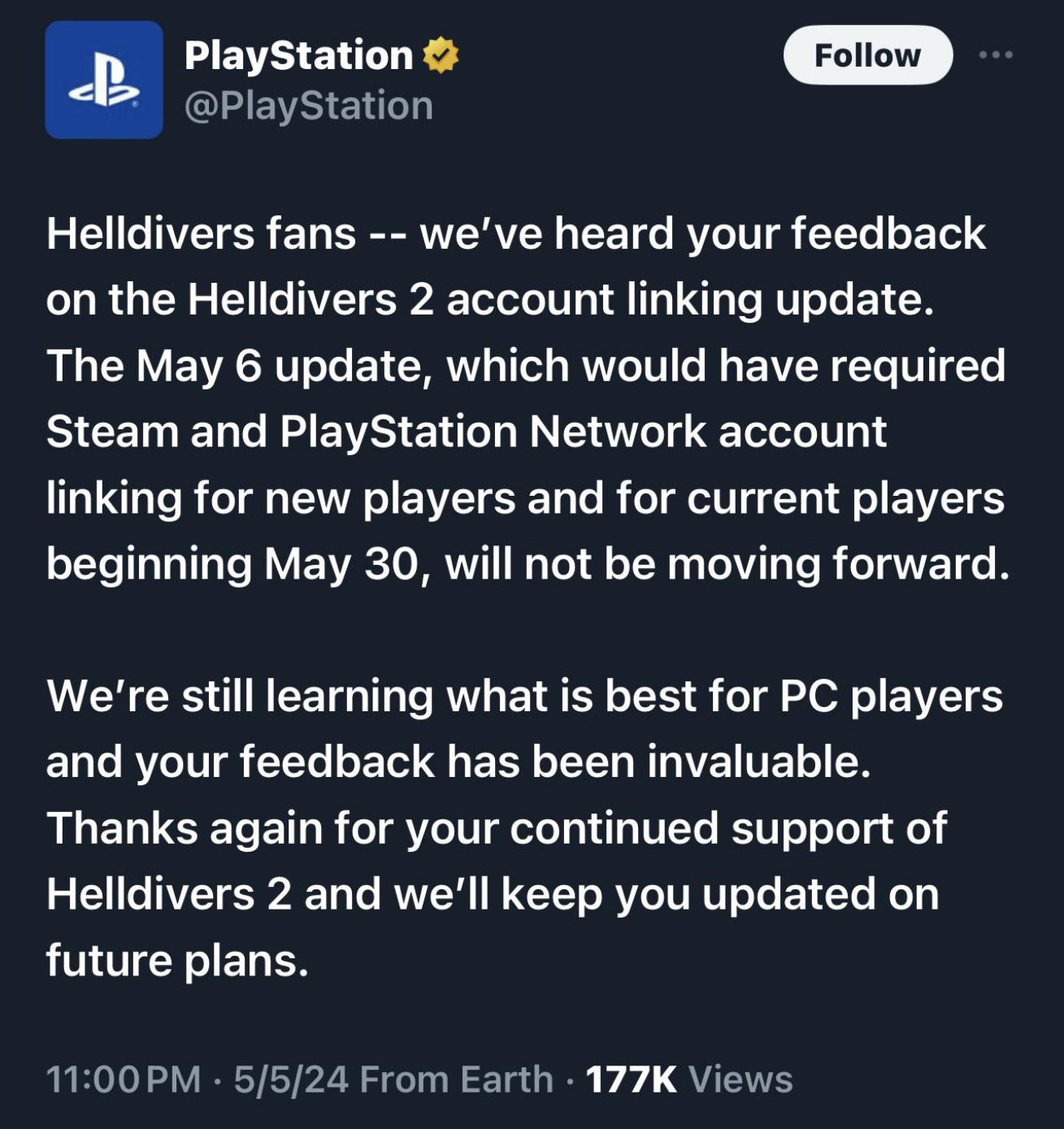view the rest of the comments
Games

Welcome to the largest gaming community on Lemmy! Discussion for all kinds of games. Video games, tabletop games, card games etc.
Rules
1. Submissions have to be related to games
Video games, tabletop, or otherwise. Posts not related to games will be deleted.
This community is focused on games, of all kinds. Any news item or discussion should be related to gaming in some way.
2. No bigotry or harassment, be civil
No bigotry, hardline stance. Try not to get too heated when entering into a discussion or debate.
We are here to talk and discuss about one of our passions, not fight or be exposed to hate. Posts or responses that are hateful will be deleted to keep the atmosphere good. If repeatedly violated, not only will the comment be deleted but a ban will be handed out as well. We judge each case individually.
3. No excessive self-promotion
Try to keep it to 10% self-promotion / 90% other stuff in your post history.
This is to prevent people from posting for the sole purpose of promoting their own website or social media account.
4. Stay on-topic; no memes, funny videos, giveaways, reposts, or low-effort posts
This community is mostly for discussion and news. Remember to search for the thing you're submitting before posting to see if it's already been posted.
We want to keep the quality of posts high. Therefore, memes, funny videos, low-effort posts and reposts are not allowed. We prohibit giveaways because we cannot be sure that the person holding the giveaway will actually do what they promise.
5. Mark Spoilers and NSFW
Make sure to mark your stuff or it may be removed.
No one wants to be spoiled. Therefore, always mark spoilers. Similarly mark NSFW, in case anyone is browsing in a public space or at work.
6. No linking to piracy
Don't share it here, there are other places to find it. Discussion of piracy is fine.
We don't want us moderators or the admins of lemmy.world to get in trouble for linking to piracy. Therefore, any link to piracy will be removed. Discussion of it is of course allowed.
Authorized Regular Threads
Related communities
PM a mod to add your own
Video games
Generic
- !gaming@Lemmy.world: Our sister community, focused on PC and console gaming. Meme are allowed.
- !photomode@feddit.uk: For all your screenshots needs, to share your love for games graphics.
- !vgmusic@lemmy.world: A community to share your love for video games music
Help and suggestions
By platform
By type
- !AutomationGames@lemmy.zip
- !Incremental_Games@incremental.social
- !LifeSimulation@lemmy.world
- !CityBuilders@sh.itjust.works
- !CozyGames@Lemmy.world
- !CRPG@lemmy.world
- !OtomeGames@ani.social
- !Shmups@lemmus.org
- !VisualNovels@ani.social
By games
- !Baldurs_Gate_3@lemmy.world
- !Cities_Skylines@lemmy.world
- !CassetteBeasts@Lemmy.world
- !Fallout@lemmy.world
- !FinalFantasyXIV@lemmy.world
- !Minecraft@Lemmy.world
- !NoMansSky@lemmy.world
- !Palia@Lemmy.world
- !Pokemon@lemm.ee
- !Skyrim@lemmy.world
- !StardewValley@lemm.ee
- !Subnautica2@Lemmy.world
- !WorkersAndResources@lemmy.world
Language specific
- !JeuxVideo@jlai.lu: French

There was a theory that the purchase restrictions were put in place by Valve, not Sony (because those countries couldn’t make an account without violating TOS). If so, Valve might shortly remove the restrictions.
Would the publisher not have to request the game not be sold in those countries before Valve restricts the sale of it?
I believe that Valve may be the ones who do it, but just doing it without permission sounds... Illegal and out of their jurisdiction.
I know Valve controls their storefront and can absolutely pull games down, just looking for some clarification on whether this could be true or not.
Valve can remove games from sale for any reason they like - it's been a point of consumer contention when they are accused of censorship for certain risque anime games, too.
If a game lets you buy it in Tanzania, download it in Tanzania, and then to play, has you sign an agreement that says "I truthfully state that I do not live in Tanzania", then that bone-headed agreement reflects poorly on Valve, so they have almost a legal need to take it out of sale in that country.
Basically, each country has its own laws of sale. Having those switches to turn off sales in certain places is important for the store's own safety. While 60% of the blame for selling a faulty product goes to the manufacturer, 40% still goes to the storefront that chose to stock and sell that faulty good. In this case, the fault was specific to the country of play.
That's right, I have heard of some of these cases, but thank you very much for the info! I definitely didn't want Sony to have any ground to stand on here, so happy that Valve is able to step up to protect consumers however they can.
We don’t know their personal contract, but calling it illegal is ridiculous, I’m sure Valve explicitly allows for this.
That's why I said I wasn't sure and that I was asking for clarification?